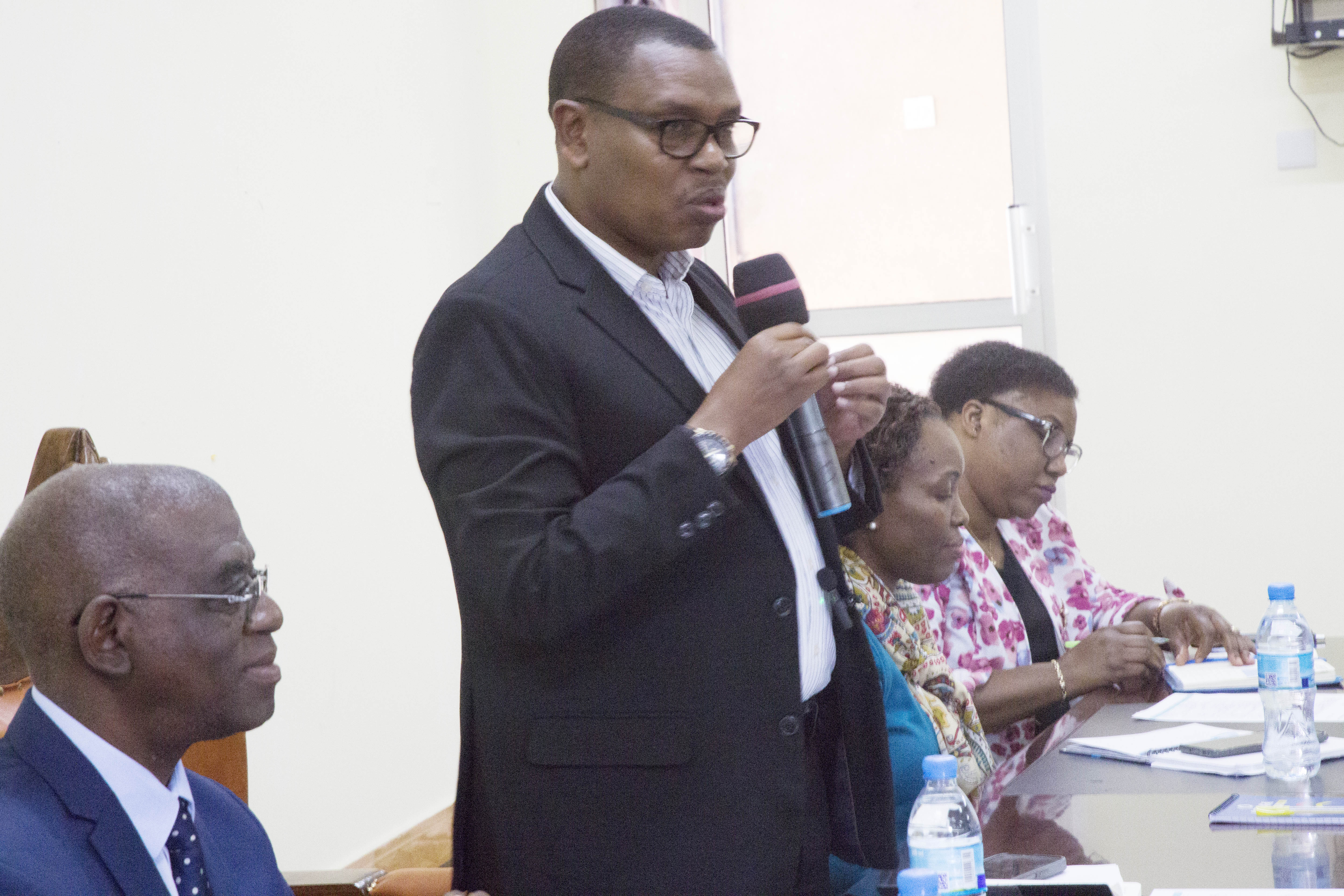
DISSEMINATION: Ifakara project shares findings of early childhood development study

The Early Childhood Development (ECD) research team, led by the project’s Principal Investigator Dr. Ester Elisaria, hosted a national workshop in Morogoro, Tanzania, to disseminate findings from their latest study aimed at enhancing the effectiveness of ECD systems in Tanzania.
The three-day workshop (July 10-12, 2024) brought together a diverse spectrum of stakeholders to provide feedback on findings from this pivotal study conducted between June 2023 and September 2023. These stakeholders represented various sectors crucial to ECD development in Tanzania.
Represented institutions and organizations include the Prime Minister’s Office; Ministry of Health; Ministry of Community Development; President’s Office – Regional Administration and Local Government; Ministry of Education, Science and Technology; UNICEF and the WHO.
The study, a collaborative effort between Ifakara and Mathematica INC, generously supported by the Conrad N. Hilton Foundation, focused on evaluating and improving finance, governance, collaboration, and policy environments within Tanzania’s ECD framework.
"This workshop is the culmination of extensive research and collaboration," Dr. Elisaria emphasized in her presentation. "Over the past months, we have engaged stakeholders from Monduli, Dodoma, Nachingwea, and Ilala to gain insights crucial for shaping the future of early childhood development in Tanzania."
The Children Affairs Director in the Ministry of Community Development Sebastian Kitiku, officially opened the dissemination workshop. He represented the ministy's Permanent Secretary, Dr. Seif Shelalaghe. Ifakara Health Institute Executive Director, Dr. Honorati Masanja, who was among the attendees issued brief remarks to welcome participants to the workshop.
The sharing of findings commenced with a comprehensive presentation on the ECD landscape in Tanzania, followed by study findings highlighting both challenges and opportunities identified during consultations with government officials, private institutions, NGOs, and community leaders across the targeted regions. The research underscored systemic barriers such as inadequate funding, fragmented governance structures, and the need for enhanced policy coherence.
"We have developed a clear Theory of Change and formulated targeted research questions to guide our efforts," Dr. Elisaria explained. "Today, we share these insights not just as data points but as a call to action for collective transformation."
Joining Dr. Elisaria in a key presentation was her colleague, Farida Katunzi, who described the measurement framework, methods, and results.
Lively discussions, breakout sessions
Attendees engaged in lively discussions and breakout sessions to delve deeper into the study’s implications. Participants exchanged perspectives on potential interventions and strategies to address identified gaps in policy formulation, governance effectiveness, and financial sustainability within Tanzania's ECD space.
"The findings presented today provide a roadmap for meaningful change," remarked a representative from the Ministry of Community Development. "It's imperative that we leverage these insights to drive policy reforms and foster stronger partnerships across sectors."
As a pivotal outcome of the workshop, Dr. Elisaria’s team announced the launch of the project’s second phase, which will build on the workshop's discussions. This phase will focus on co-creating solutions with stakeholders, ensuring actions are informed by the voices and needs of those on the ground.
What Dr. Elisaria and team found?
Policy: Tanzania lacks a comprehensive policy integrating all crucial elements of Child Development and Early Education. The existing National Strategic Plan covers these elements but needs enhancement to address mental health challenges, the needs of incarcerated and street children, and those without stable housing. Guidelines in education, health, and nutrition also require revision to comprehensively incorporate these elements.
Governance: The Early Childhood Development and Education Plan effectively defines governance from national to local levels, primarily managed by TAMISEMI. However, implementation delays are observed due to limited oversight clarity beyond national levels. While there is investment in human resources and community childcare centers, there is a shortage of caregivers and uneven distribution of services across regions. The presence of many CSOs presents opportunities, but uneven distribution limits their impact.
Finance: While the government allocates funds for Tanzanian children, specific budget tracking for ECD (ages 0-8) is challenging due to fragmented responsibility across ministries targeting different age ranges. Education and TASAF receive a more significant share of the budget, complicating allocation specifically for 0–8-year-olds.
Inclusive Participation: Stakeholders commend government and NGO commitment to involving them in ECD issues but request improved involvement at lower administrative levels. They seek clarified roles, reduced power imbalances, and enhanced NGO participation in policy discussions to ensure more effective and inclusive decision-making processes.
